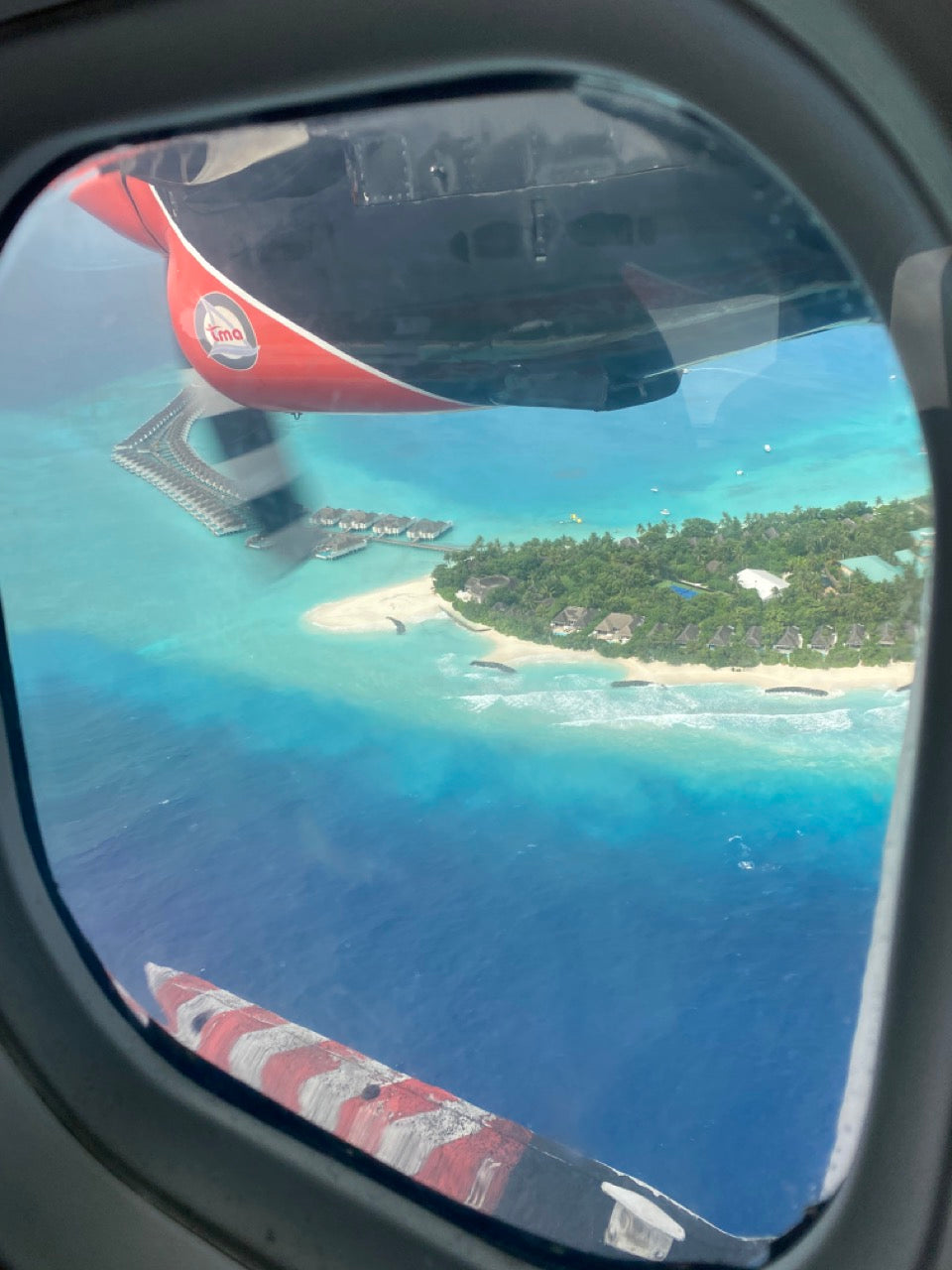“Minnie I’ve got a turtle that needs help, I’m coming your way” the voice on the radio said just as we were about to wrap up morning duties at the Marine Turtle Rescue Centre of the Olive Ridley Project.
SEE THE RESCUE HERE!
This video I took featured on The Dodo and accrued over 1.9million views on my TikTok alone. The coverage led to millions more views for the Olive Ridley Project - the group on the front lines rescuing these amazing animals - with many of these views leading to support both directly to the organisation and for the cause of ocean plastics awareness in general. Storytelling in this way can make a real difference to important and big issues. Seeing first hand the impact of ocean plastics on marine life gave me the drive to go plastic-free in my own business.
Resident vet Dr. Minnie is leading the team of volunteers this April morning in this tropical Maldivian environment, the elements ensuring that there is no shortage of cleaning, fixing and more cleaning. We are all glad for a change of activity.
Barefoot and ready, we quickly made our way to the jetty just in time to see the boat come into view. Abbas, the Maldivian guide and voice over the radio, had spotted a large Olive Ridley sea turtle floating in the ocean, caught up in a floating, tangled mess of fishing line & nets.
We jumped onboard, cut the thick ropes from his massive flippers, and rushed him to the hospital. The large male turtle was bleeding from the tightening netting that had been his floating prison, cutting into him and slowly constricting his front flippers – so much so that they were now grinding on open bone. The turtle likely had been trapped floating in the open sea for several weeks. Another week or two and they would have been amputated, sealing his fate.

The vet team went to work. Once back at the clinic, Dr Minnie gives fluids as Abba was very dehydrated. After initial triage and wound care, Abba was set up in a hospital tank to begin the start of his journey towards recovery.
We named him ‘Abba’ after his rescuer and it was obvious that he would need help if he was ever going to go back to the sea. For the first week, Abba didn’t eat. But after surgery, IV fluids, pain relief, antibiotics and careful wound care he soon began swimming and even diving down – a promising sign. After all, many turtles entangled in such ‘ghost nets’ have buoyancy problems due to air trapped under their shell, the result of injuries like torn lungs from the struggle to free themselves.
By week three Abba had gained back his strength, leaving us at times a tiny bit frustrated (at bandage changes!) but mostly really delighted to see him act quite wild. His wounds were also on the mend. The once exposed bones were covered with healing tissue. It seemed he was going to get to keep his flippers.

Necessity is the mother of invention. Here, we used text books to elevate the horizontal x-ray beam to get a good view of this Olive Ridley sea turtle's lungs.
When it was his time, Abba was released from the beach. He was too big and too wild to put into a container on a boat. Once he got a whiff of that sea water there was no stopping him as he furiously rowed towards the water, finally disappearing under the waves! Despite what was probably the first time being on land since his birthday as a hatchling some 30-100 years ago (we can only guess the age of this old mariner!), he just knew. It was time to go Home. We all hoped that Abba would at last make his way back to the coasts of India, where he was destined to breed and produce many more of his endangered kind.
Abba’s story is unique: he was one of the lucky ones. Abandoned or discarded fishing gear, or “ghost nets”, is responsible for the killing of millions of marine animals every year. This is a problem that is at the same time surprisingly extensive and generally unknown – including to me.
I went to the Maldives as a volunteer vet to learn more about turtle medicine but returned with a much greater appreciation for how our activities can have real impacts in other parts of the world, now and far into the future. So when I started my own company, BarkyBakey, I was determined to have plastic-free, compostable packaging.
More on ghost nets and ocean plastics in another article…

Here vet Dr Claire ultrasounds this Olive Ridley sea turtle. Many, like this one, had to have limb amputations due to the damage the ghost nets caused. An Olive Ridley sea turtle can manage in the wild with 3 flippers, and the hope for this one would be release back to the wild.
Fortunately, there are some out there who can help some of these impacted animals. Since 2013 the Olive Ridley Project has physically removed over 5 tons of ghost gear from the Indian ocean, worked with fisheries to try and prevent these nets from entering the Indian ocean (they don’t even occur in the Maldives – more on this another time!) and since 2017 have treated 150 sea turtles in a purpose-built Marine Turtle Rescue Centre. They are doing great work - to learn more about sea turtle conservation visit www.oliveridleyproject.org .


 The view from the propellor driven sea plane as we circle to land on the island. the Maldivian pilots are known for wearing flip flops or sandals while flying, ours did not disappoint!
The view from the propellor driven sea plane as we circle to land on the island. the Maldivian pilots are known for wearing flip flops or sandals while flying, ours did not disappoint!